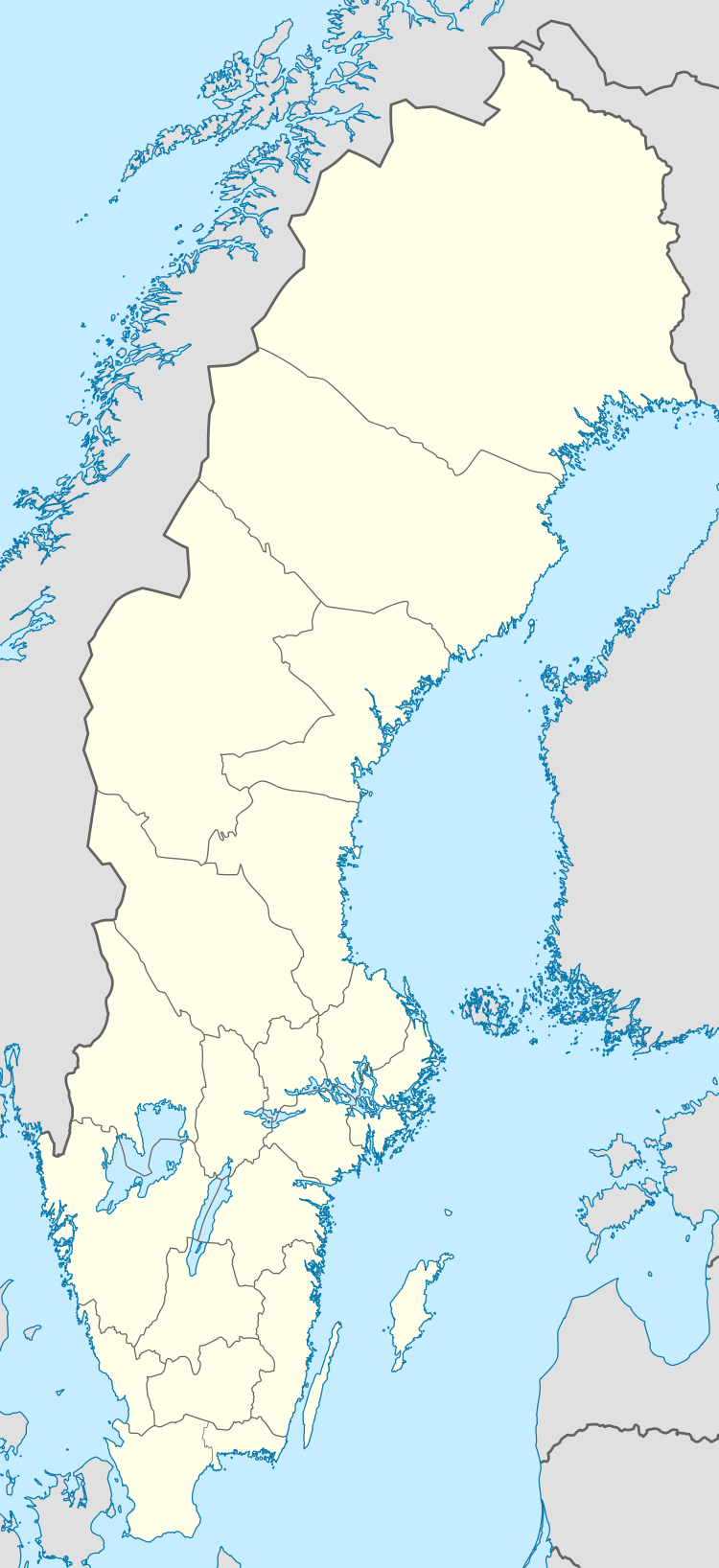Kumla
| Kumla | |
|---|---|
|
Kumla Train Station | |
 Kumla  Kumla | |
| Coordinates: 59°07′N 15°08′E / 59.117°N 15.133°ECoordinates: 59°07′N 15°08′E / 59.117°N 15.133°E | |
| Country | Sweden |
| Province | Närke |
| County | Örebro County |
| Municipality | Kumla Municipality |
| Area[1] | |
| • Total | 7.79 km2 (3.01 sq mi) |
| Population (31 December 2010)[1] | |
| • Total | 14,062 |
| • Density | 1,806/km2 (4,680/sq mi) |
| Time zone | CET (UTC+1) |
| • Summer (DST) | CEST (UTC+2) |
Kumla is a locality and the seat of Kumla Municipality, Örebro County, Sweden with 14,062 inhabitants in 2010.[1]
Geography
Kumla is situated roughly 15 kilometres south of neighbouring city Örebro, and is connected to its much larger neighbour with train and bus commuting. Kumla is unusual in terms of municipality seats in Svealand in that there is no connection to any kind of waterway in the centre of the town. However, three of the four biggest lakes in the country are within an hour's drive from the town. It is also an unusually flat town, since it is situated in the middle of the so-called Närke Plain. There is also a very agrarian landscape surrounding Kumla.
Transport
Kumla is linked with several roads, including the highway E20 that is passing just west of the locality. The E20 is the fastest route to both Gothenburg and Stockholm, which Kumla is situated relatively close to the middle between the two largest Swedish cities. E20 passes Örebro as well, but there are several routes which go to the larger neighbour city from Kumla. The roads 51 (from Norrköping) and 52 (from Nyköping) also pass through Kumla.
Kumla also has a train station on the Stockholm-Gothenburg route driven by SJ.
History
Traditionally Kumla was known as a shoemaker town with a history back to the first half of the 19th century. This history is memorized in Kumla's Shoe Industry Museum, with a small-scale production of shoes.
Kumla got the title of a city in 1942, but is since 1971 the seat of the larger Kumla Municipality.
Today
Today the industry is dominated by the manufacturing of jam at Bob Industries and communication systems at an Ericsson industry.
Notability
Today the name Kumla is renowned for its prison ("the Kumla Institution", or Kumlaanstalten, commonly known as 'The Bunker'), which is the largest prison in the country. Opened in 1965, it can currently allow 333 inmates, with a similarly large staff, and is designated for "difficult" inmates and for those at the start of a life-term sentence. It is one of three Swedish prisons housing the most notorious and dangerous inmates.
 In 1920, Kumla was still a small town
In 1920, Kumla was still a small town- "Absit Omen" artwork by Swedish artist Kent Karlsson placed on the permanent exhibition "Konst på hög" in Kumla
- "Karyatid" by Richard Brixel, at the same exhibition
Formula 1 driver Marcus Ericsson was born in the town.
References
| Wikimedia Commons has media related to Kumla. |
- 1 2 3 "Tätorternas landareal, folkmängd och invånare per km2 2005 och 2010" (in Swedish). Statistics Sweden. 14 December 2011. Archived from the original on 10 January 2012. Retrieved 10 January 2012.
